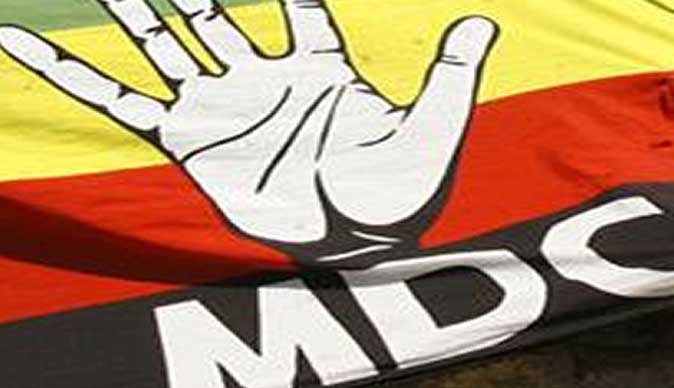
From inside a party meeting assessing the damage, the SMS from the MDC-T activist could not have been more different than his “We hv won” after Zimbabwe’s March 2008 election.
David Moore
“Bad news,” wrote the man who was in seventh heaven at the country’s biggest ever political rally two days before: “We hv bn hit by the unexplainable. Its game over. 5 years with (President Robert) Mugabe again”.
The MDC-T’s hopes for a “crossover” peaked at the rally (20% being registered, opined one senior observer: I trust that the young fellow who pickpocked me was one of the unregistered masses!). The real crossover contrasted starkly to the hopes of the MDC-T, its civil society supporters, and democrats the world over. It marked a fundamental transformation in Zimbabwe’s polity and social order nonetheless.
The results were soon in: Zanu PF’s 62 to 34% victory over Zimbabwe’s main opposition in the presidential race and an over two-thirds parliamentary majority guarantee “revolutionary party” power for the next five years.
One large question remains. Why did the MDC-T enter this election? The Central Intelligence Organisation’s (with its own diamond mine, reportedly) careful preparatory work was well-known: Zimbabwean intelligence is about sharing more than keeping secrets.
Nikuv’s mercenaries (admittedly better than those wielding guns, but quartered with the Defence ministry nonetheless) working since 2000, invented sci-fi John Le Carré pre-ballot ruses carrying the “revolutionary party” to a majority more than even it and Western legitimacy packagers such as Andy Young and Jesse Jackson expected.
But a good proportion of its tricks – from duplicated names to ghosts – were known well in advance of D-Day. Many had been tested in May’s constitutional referendum and July’s special security forces votes.
- Chamisa under fire over US$120K donation
- Mavhunga puts DeMbare into Chibuku quarterfinals
- Pension funds bet on Cabora Bassa oilfields
- Councils defy govt fire tender directive
Keep Reading
After Zimbabwe’s predictable judges refused Sadc’s mid-June request to postpone the election by a mere two weeks, Sadc facilitators offered support to the MDC-T if it withdrew pending consolidation of the Global Political Agreement’s electoral conditions.
The MDC-T debated the proposition, deciding against. Victory was in sight.
The United Nations World Tourism Organisation general assembly made post-election violence improbable. Repetition of the 2008 run-off carnage was considered unlikely given its ramifications for Zanu PF if repeated.
If the MDC-T disappeared in Matabeleland, wouldn’t Zapu and/or the splinter MDC have taken the cake? Moreover, there were no guarantees how far Sadc’s support – perhaps only offered on the sidelines and thus hard to back up – would go if the plug was pulled.
Yet it seems Zanu PF had no Plan B if the MDC-T had refused to attend the nomination courts. Mugabe’s screaming insults at Zulu could have alerted MDC-T strategists of their advantage. As one perplexed Zimbabwean activist queried: “Where was the leadership?” A
long with its insistence in 2008 that polling results be posted outside each station, Sadc’s quiet offer could have deepened Zimbabwe’s democratic dynamic irretrievably. That chance is foregone: Has it foretold democracy’s death? The lesson?
Take every opportunity to divert Zanu PF from its path: artlessness and hubris are no challenge to 50 years of domestic and international cunning.
The leadership issue questions Morgan Tsvingirai’s future. With it arises the “cold war” between secretary-general Tendia Biti (surely relieved to be released of the Finance ministry’s albatross) and national organiser Nelson Chamisa (who let too much in his Communications ministry slip to Zanu PF’s Transport portfolio – eg cellphone companies paying licences 15 years in advance – and failed to organise the election well enough).
The prospect of pure opposition rather than hamstrung co-governance may fire Tsvangirai up, but many think that losing all the elections since 2000 – be they by hook or crook – renders him unfit. Will the party survive either his hanging on or his departure?
The loss of much of its dead wood is a plus, as is the virtual disappearance of the splinter parties – although in their wake the MDC-T lost many Matabeleland seats as it fell through cracks created by Dumiso Dabengwa’s Zapu and Welshman Ncube’s other MDC.
Zanu PF may as well have been practising divide-and-rule. Division and control could end, in Matabeleland especially, if early unity buries rusting hatchets.
On a larger scale, 15 years of deindustrialisation have decimated trade union-based civil society: it remains to be seen if a new subaltern base made up of striving “new peasants” is irretrievably and organically Zanu PF. A core of youthful civil society intellectuals disenchanted with the MDC-T’s move into patron-client politics may see a new party born: Zanu PF’s intellectuals are already crowing at that new wizard.
Zanu PF’s habit of harsh recrimination to those stymying its right to eternal power will discourage democratic deepening. Yet Zanu PF may factionalise further.
Mugabe’s glue, holding the party together since 1977, is decaying. Policy swings between populist patriotism and weak technocratic efforts to re-engage the international financial institutions to crack the $11 billion debt will ensue. Will the diamond lords channel their wealth to the State, not their expanding empires?
If the economy nosedives again – and this surely must be exorcising the European Union’s agonising over sanctions, which were on the way to lifting had the elections been more tolerable – Zimbabweans’ choices will be stark.
After a decade and a half a stoic denizenry has become adept at informal work and sending in millions from the Diaspora, but this, notwithstanding enclaved diamonds and platinum, is a precarious political economy at the best of times. They may have to choose resistance over resilience.
Will the MDC-T marshal collectivity of contestation to its cause before it gets out of hand, or will a Zanu PF style of authoritarian populism win the day?
lThe story was first published by the Solidarity Peace Trust











